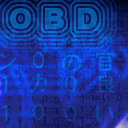OBD:TSGA: Difference between revisions
Jump to navigation
Jump to search
m (design + update) |
No edit summary |
||
| Line 14: | Line 14: | ||
{{OBDtr| 0x04 | lev_id |FFFF00| 01 00 00 00 | 0 | level 0 }} | {{OBDtr| 0x04 | lev_id |FFFF00| 01 00 00 00 | 0 | level 0 }} | ||
{{OBDtrBK}} | {{OBDtrBK}} | ||
{{OBDtr| 0x00 | int16 |FFC8C8| 00 00 |unused| unknown }} | {{OBDtr| 0x00 | int16 |FFC8C8| 00 00 |unused| unknown; same value as the index of the element or 0 if not used }} | ||
{{OBDtr| 0x02 | int16 |FFFFC8| 00 00 |unused| | {{OBDtr| 0x02 | int16 |FFFFC8| 00 00 |unused| width (in pixels) }} | ||
{{OBDtr| 0x04 | int16 |C8FFC8| 00 00 |unused| | {{OBDtr| 0x04 | int16 |C8FFC8| 00 00 |unused| width again? }} | ||
{{OBDtr| 0x06 | | {{OBDtr| 0x06 | int16 |C8FFFF| 00 00 |unused| height (in pixels) }} | ||
{{OBDtr| 0x0A | int16 |FFC8FF| 00 00 |unused| | {{OBDtr| 0x08 | int16 |C8FFFF| 00 00 |unused| unknown; always 0 }} | ||
{{OBDtr| 0x0A | int16 |FFC8FF| 00 00 |unused| unknown }} | |||
{{OBDtr| 0x0C | int32 |FFC800| 00 00 00 00 |unused| start element in the [[OBD:TSFT|TSFT]] file }} | {{OBDtr| 0x0C | int32 |FFC800| 00 00 00 00 |unused| start element in the [[OBD:TSFT|TSFT]] file }} | ||
{{OBDtr| 0x10 | int32 |C800C8| 00 00 00 00 |unused| unknown; always | {{OBDtr| 0x10 | int32 |C800C8| 00 00 00 00 |unused| unknown; always 0 }} | ||
|} | |} | ||
A glyph is basically a monochrome bitmap width * height pixels in size. Each pixel is stored in one byte in the [[OBD:TSFT|TSFT]] file (fonts are antialiased so shades of gray are needed rather than storing each pixel in one bit) so each element in the TSFT file contains 4 pixels. Rows of pixels are not 4 bytes aligned so a row can start inside an element. | |||
{{OBD_File_Footer | type=TSGA | prev=TSFT | next=TStr | name=Glyph Array | family=Global}} | {{OBD_File_Footer | type=TSGA | prev=TSFT | next=TStr | name=Glyph Array | family=Global}} | ||
Revision as of 23:41, 14 September 2007
|

|
Every TSGA file contains 256 elements. One element stands for one of the 256 signs of the ASCII table. The first 32 signs are reserved control characters, so these elements are always complete zero.
| Offset | Type | Raw Hex | Value | Description |
|---|---|---|---|---|
| 0x00 | res_id | 01 04 00 00 | 4 | 00004-.TSGA |
| 0x04 | lev_id | 01 00 00 00 | 0 | level 0 |
| First element (black outline) | ||||
| 0x00 | int16 | 00 00 | unused | unknown; same value as the index of the element or 0 if not used |
| 0x02 | int16 | 00 00 | unused | width (in pixels) |
| 0x04 | int16 | 00 00 | unused | width again? |
| 0x06 | int16 | 00 00 | unused | height (in pixels) |
| 0x08 | int16 | 00 00 | unused | unknown; always 0 |
| 0x0A | int16 | 00 00 | unused | unknown |
| 0x0C | int32 | 00 00 00 00 | unused | start element in the TSFT file |
| 0x10 | int32 | 00 00 00 00 | unused | unknown; always 0 |
A glyph is basically a monochrome bitmap width * height pixels in size. Each pixel is stored in one byte in the TSFT file (fonts are antialiased so shades of gray are needed rather than storing each pixel in one bit) so each element in the TSFT file contains 4 pixels. Rows of pixels are not 4 bytes aligned so a row can start inside an element.
| ONI BINARY DATA |
|---|
| TSFT << Other file types >> TStr |
| TSGA : Glyph Array |
| Global file |
